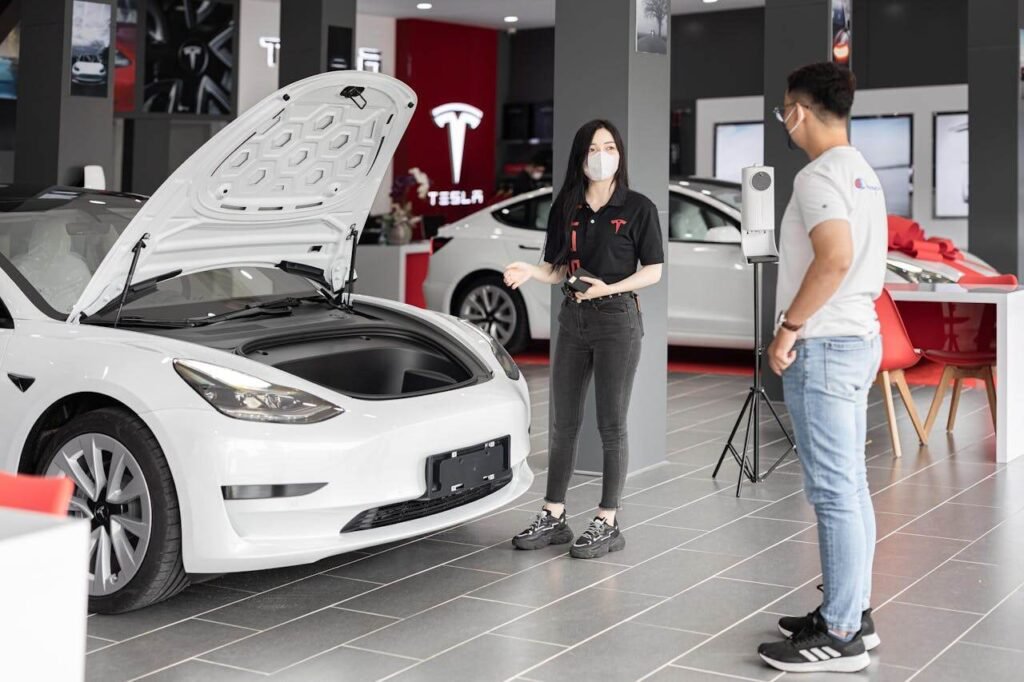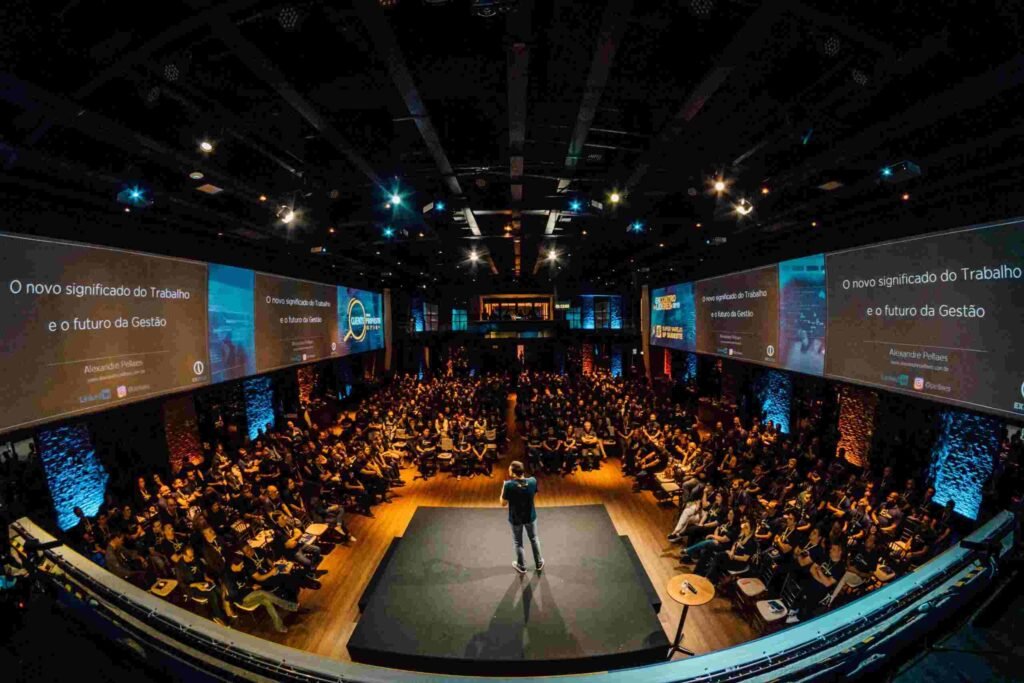In today’s competitive market, car dealers need to implement effective marketing strategies to stand out and attract customers. Whether you run a large dealership or a small independent lot, the right marketing approach can drive sales, build customer loyalty, and enhance your brand’s reputation.
Understanding Your Target Audience
Knowing your target audience is the first step in crafting effective marketing strategies. Your customers might range from first-time buyers to seasoned car enthusiasts, each with different needs and preferences.
Identifying Customer Segments
Identify different customer segments and tailor your marketing efforts to meet their specific needs. For instance, younger buyers might be more interested in affordable, fuel-efficient cars, while families might prioritize safety and space.
Luxury car buyers will have entirely different criteria. Understanding these segments helps you create targeted messages that resonate with each group.
Gathering Customer Data
Collect data on your customers to better understand their preferences and behaviors. Use CRM systems to track customer interactions, purchase history, and inquiries.
This data can help you personalize your marketing efforts and provide a more customized experience for your customers.
Creating Engaging Content
Content is a powerful tool for attracting and engaging potential customers. High-quality, informative content can position your dealership as an authority in the automotive industry and build trust with your audience.
Blog Posts and Articles
Write blog posts that address common questions and concerns your customers might have. Topics like “How to Choose the Right Car for Your Family” or “The Benefits of Electric Vehicles” can attract readers who are in the research phase of buying a car.
Providing valuable information helps establish your dealership as a trusted resource.
Videos
Video content is particularly effective in the automotive industry. Create videos showcasing your inventory, highlighting key features of popular models, and providing virtual tours of your dealership.
Customer testimonials and how-to videos, such as maintenance tips or buying guides, can also engage your audience and build credibility.
Social Media Campaigns
Leverage social media platforms to reach a broader audience and engage with potential customers. Share updates about new arrivals, special promotions, and events at your dealership.
Use high-quality images and videos to showcase your cars and create posts that encourage interaction, such as polls, contests, and Q&A sessions.
Leveraging SEO and Local Search
Optimizing your online presence for search engines is crucial for driving organic traffic to your website. Local SEO is particularly important for car dealers, as most customers will be looking for dealerships in their vicinity.
Optimizing Your Website
Ensure your website is optimized for relevant keywords that potential customers might use when searching for a car. Use phrases like “car dealership in [Your City]” or “[Car Brand] dealer near me.”
Include these keywords naturally in your website content, meta descriptions, and image alt tags. A well-optimized website can improve your search engine rankings and attract more visitors.
Google My Business
Set up and optimize your Google My Business (GMB) profile. Ensure all your business information is accurate and up-to-date, including your address, phone number, and hours of operation.
Encourage satisfied customers to leave reviews on your GMB profile, as positive reviews can enhance your local search visibility and build trust with potential buyers.
Local Citations
List your dealership in local online directories and citation sites. Consistent information across these listings helps improve your local SEO and makes it easier for customers to find you.
Include your business name, address, phone number, and a link to your website in each listing.
Email Marketing
Email marketing is an effective way to nurture leads and keep your dealership top-of-mind for potential customers. By sending targeted and personalized emails, you can build relationships and drive sales.
Building an Email List
Collect email addresses through your website, social media channels, and in-person interactions at your dealership. Offer incentives for signing up, such as exclusive promotions, early access to new arrivals, or useful guides and tips.
Personalized Email Campaigns
Segment your email list based on customer preferences, purchase history, and engagement levels. Send personalized emails that address the specific needs and interests of each segment.
For example, offer maintenance tips and service reminders to existing customers, while sending promotional offers and new inventory alerts to potential buyers.
Drip Campaigns
Implement drip campaigns to nurture leads over time. Send a series of automated emails that provide valuable information and gently guide potential customers through the buying process.
Include content such as buying guides, comparison articles, and testimonials to build trust and keep your audience engaged.
Building a Strong Brand Identity
A strong brand identity differentiates your dealership from competitors and creates a lasting impression on customers. Consistency in branding across all marketing channels helps build recognition and trust.
Defining Your Brand
Clearly define your brand’s mission, values, and unique selling propositions (USPs). What makes your dealership special? Why should customers choose you over others?
Your brand should reflect these aspects consistently in all your marketing efforts.
Establishing Your Brand’s Core Values
Your brand’s core values are the foundation of your identity. These values should reflect what your dealership stands for and guide all your business practices.
Begin by defining what makes your dealership unique. Are you focused on exceptional customer service, offering the best value, or specializing in a particular type of vehicle?
Once your core values are established, ensure they are consistently communicated across all marketing channels. Integrate these values into your mission statement, website content, social media posts, and customer interactions.
For example, if one of your core values is transparency, make sure your sales process is straightforward, and all costs are clearly communicated to customers.
Consistent Visual Identity
A consistent visual identity is crucial for building brand recognition. This includes your logo, color scheme, typography, and overall design aesthetics.
Ensure these elements are consistently applied across all marketing materials, from your website and social media profiles to your signage and print ads.
Work with a professional designer to create a cohesive visual identity that reflects your brand’s personality and values. Use this visual identity to create a strong first impression and ensure your dealership stands out in the minds of potential customers.
Developing a Unique Selling Proposition (USP)
Your Unique Selling Proposition (USP) is what sets your dealership apart from competitors. It’s the reason why customers should choose you over others.
Developing a strong USP requires a deep understanding of your target audience and their needs.
Identify what makes your dealership unique. It could be your exceptional customer service, a wide selection of vehicles, competitive pricing, or exclusive financing options. Clearly communicate your USP in all your marketing efforts.
Make it the central message in your advertising, website content, and sales pitches. A strong USP can be a powerful tool for attracting and retaining customers.
Crafting a Memorable Brand Story
A compelling brand story can create an emotional connection with your audience. Share the history of your dealership, the challenges you’ve overcome, and your vision for the future.
Highlight the people behind your brand—introduce your team, share their stories, and explain their roles. Your brand story should be authentic and relatable.
Use it to showcase your dealership’s personality and values. This story can be featured on your website, in marketing materials, and through social media campaigns. A well-crafted brand story not only humanizes your business but also makes it more memorable and engaging.
Building Trust through Transparency
Transparency is essential for building trust with your customers. Ensure that all your business practices, from pricing to service, are open and honest. Clearly communicate all costs, financing options, and terms of sale.
Providing detailed and accurate information helps build credibility and confidence in your brand. Transparency should extend to your marketing efforts as well.
Avoid making exaggerated claims or using high-pressure sales tactics. Instead, focus on providing value and helping customers make informed decisions. A transparent approach can enhance your reputation and encourage repeat business and referrals.
Brand Voice and Messaging
Develop a consistent brand voice and messaging that resonates with your target audience. Whether your tone is friendly and approachable or professional and authoritative, ensure it remains consistent in all communications.
Craft messages that highlight your USPs and connect emotionally with your audience. Develop key messaging points that highlight your core values, USP, and brand story.
Use these messages in your advertising, social media posts, email campaigns, and customer interactions. Consistent and engaging messaging can help build a strong brand identity and foster customer loyalty.
Enhancing Digital Presence with Video Marketing
Video marketing is a powerful tool for car dealers, offering dynamic and engaging ways to showcase your inventory and services. Leveraging video content can drive traffic, increase engagement, and boost conversions.
Virtual Tours and Test Drives
Create virtual tours and test drive videos to give potential customers an immersive experience of your vehicles. Highlight key features, interior details, and performance aspects.
Virtual tours allow customers to explore your inventory from the comfort of their homes, increasing their likelihood of visiting your dealership in person.
Customer Testimonials
Video testimonials from satisfied customers are compelling and trustworthy. Capture short videos of customers sharing their positive experiences with your dealership and vehicles.
Share these testimonials on your website, social media, and email campaigns to build credibility and attract new buyers.
Educational and Informative Content
Produce educational videos that provide valuable information to your audience. Topics could include car maintenance tips, buying guides, or explanations of new automotive technologies.
Educational content positions your dealership as a knowledgeable resource and helps build trust with potential customers.
Utilizing Social Media to Drive Engagement
Social media platforms offer vast opportunities for engaging with your audience and promoting your dealership. A well-executed social media strategy can enhance your online presence and drive more traffic to your website.
Engaging Content
Post regularly on social media with content that engages and informs your audience. Share updates about new arrivals, special promotions, and events. Use high-quality images and videos to capture attention.
Encourage interaction by asking questions, hosting contests, and responding to comments promptly.
Social Media Advertising
Invest in social media advertising to reach a larger and more targeted audience. Platforms like Facebook and Instagram offer robust targeting options that allow you to reach potential customers based on demographics, interests, and behaviors.
Create visually appealing ads that highlight your inventory, special offers, and dealership events.
Influencer Collaborations
Collaborate with local influencers to amplify your reach and credibility. Influencers can create authentic content that showcases your dealership and vehicles.
Partnering with influencers who have a strong local following can attract new customers and enhance your brand’s reputation.
Building and Nurturing Customer Relationships

Strong customer relationships are the foundation of long-term business success. Focus on building and nurturing these relationships to encourage repeat business and referrals.
Excellent Customer Service
Provide exceptional customer service at every touchpoint. Train your staff to be knowledgeable, friendly, and responsive to customer needs.
A positive customer experience can lead to repeat business and word-of-mouth referrals.
Follow-Up and Engagement
Stay engaged with your customers after the sale. Send follow-up emails or calls to ensure they are satisfied with their purchase. Offer support and answer any questions they may have.
Regular engagement helps maintain a positive relationship and keeps your dealership top-of-mind for future purchases.
Loyalty Programs and Rewards
Implement loyalty programs that reward customers for repeat business and referrals. Offer discounts, special promotions, or exclusive events to loyal customers.
A well-designed loyalty program can foster long-term relationships and increase customer retention.
Emphasizing Community Involvement
Active involvement in your local community can enhance your dealership’s reputation and build strong connections with potential customers. Participate in community events and support local causes to demonstrate your commitment to the community.
Sponsorship and Participation
Sponsor local sports teams, events, and charities to increase your dealership’s visibility and show your support for the community. Participate in local fairs, festivals, and other events to engage with potential customers and build relationships.
Community Outreach Programs
Develop community outreach programs that provide value to your local area. This could include educational workshops, car maintenance clinics, or safe driving courses.
Community involvement can enhance your brand’s reputation and attract customers who value businesses that give back.
Utilizing Paid Advertising
Paid advertising can provide a significant boost to your marketing efforts by increasing visibility and driving targeted traffic to your dealership. With the right approach, you can maximize your return on investment and reach potential customers more effectively.
Pay-Per-Click (PPC) Advertising
PPC advertising, particularly on platforms like Google Ads, allows you to target specific keywords and demographics. Create targeted ads that appear in search results when users search for terms like “new cars for sale” or “[Car Brand] dealer in [Your City].”
Use compelling ad copy and strong calls-to-action to encourage clicks and conversions. Regularly monitor and adjust your campaigns to ensure optimal performance and cost-effectiveness.
Social Media Ads
Social media platforms like Facebook, Instagram, and LinkedIn offer robust advertising options that can help you reach a broad audience. Use detailed targeting options to reach users based on demographics, interests, and behaviors.
Create visually appealing ads that showcase your inventory, special promotions, and events. Utilize features like carousel ads to display multiple vehicles or dynamic ads to retarget users who have visited your website.
Retargeting Campaigns
Retargeting campaigns can help you re-engage users who have previously visited your website but didn’t make a purchase. Use retargeting ads to remind them of the vehicles they viewed and offer incentives to encourage them to return to your site.
Personalized retargeting ads can increase conversion rates by keeping your dealership top-of-mind for potential buyers.
Creative and Compelling Ad Copy
Crafting compelling ad copy is crucial for capturing attention and driving clicks. Focus on creating clear, concise, and persuasive messages that highlight the unique benefits of your vehicles and dealership.
Use strong calls-to-action (CTAs) that encourage users to take the next step, such as scheduling a test drive or visiting your showroom.
Hosting Events and Promotions
Hosting events and promotions at your dealership can drive foot traffic, create buzz, and generate sales. These events provide an opportunity for potential customers to experience your inventory firsthand and interact with your team.
Special Sales Events
Organize special sales events around holidays, new model releases, or end-of-year clearances. Promote these events through your website, social media, email campaigns, and local advertising.
Offer limited-time discounts, financing deals, and trade-in bonuses to attract buyers. Create a sense of urgency to encourage quick decision-making and boost sales during the event.
Community Events
Participate in or sponsor local community events to increase your dealership’s visibility and build relationships with potential customers. This could include sponsoring local sports teams, participating in charity events, or hosting family-friendly activities at your dealership.
Engaging with the community helps build brand awareness and trust, making it more likely that locals will consider your dealership when purchasing a car.
Enhancing Customer Experience
Providing an exceptional customer experience is key to building long-term relationships and encouraging repeat business. Focus on creating a seamless and enjoyable buying process, both online and in-person.
Online Experience
Ensure your website is user-friendly, with intuitive navigation and easy access to important information. Provide high-quality images and detailed descriptions of your inventory.
Implement features like virtual tours and online chat support to enhance the online shopping experience. Make it easy for customers to schedule test drives, request quotes, and apply for financing through your website.
In-Person Experience
Train your sales team to provide excellent customer service. Emphasize the importance of being knowledgeable, approachable, and responsive to customer needs. Create a welcoming environment at your dealership, with comfortable waiting areas, refreshments, and clear signage.
Ensure the buying process is smooth and transparent, from initial consultation to final paperwork.
Leveraging Customer Reviews and Testimonials

Customer reviews and testimonials play a crucial role in building trust and credibility. Positive feedback from satisfied customers can influence potential buyers and improve your dealership’s reputation.
Encouraging Reviews
Ask satisfied customers to leave reviews on platforms like Google, Yelp, and Facebook. Make it easy for them by providing direct links and simple instructions.
Consider offering incentives, such as discounts on future services or entry into a prize draw, to encourage more reviews. Respond to all reviews, thanking customers for their feedback and addressing any concerns promptly and professionally.
Showcasing Testimonials
Feature customer testimonials prominently on your website and in your marketing materials. Highlight stories that showcase your exceptional service, competitive pricing, and quality vehicles.
Use written testimonials, video interviews, and social media posts to share these success stories with a broader audience.
Implementing a Loyalty Program
A loyalty program can incentivize repeat business and encourage referrals. By rewarding loyal customers, you can build a strong customer base that continues to choose your dealership for future purchases and services.
Designing a Loyalty Program
Create a loyalty program that offers rewards for repeat purchases, service visits, and referrals. Rewards could include discounts on future services, free maintenance checks, or exclusive access to special events.
Promote your loyalty program through your website, email campaigns, and in-person interactions at your dealership.
Tracking and Managing Rewards
Use a CRM system to track customer participation and manage rewards. Ensure your sales and service teams are aware of the program and can explain its benefits to customers.
Regularly review the program’s performance and make adjustments to keep it attractive and relevant to your customers.
Monitoring and Analyzing Performance
Regularly monitoring and analyzing your marketing efforts is essential to ensure you’re achieving your goals and making informed decisions.
Use analytics tools to track key performance indicators (KPIs) and measure the effectiveness of your strategies.
Setting Clear Goals
Define clear, measurable goals for your marketing campaigns. This could include increasing website traffic, generating more leads, or boosting sales during a specific period.
Establishing these goals helps you stay focused and provides a benchmark for measuring success.
Using Analytics Tools
Leverage analytics tools like Google Analytics, social media insights, and CRM software to gather data on your marketing performance. Track metrics such as website visits, lead generation, conversion rates, and customer retention.
Analyze this data to identify trends, strengths, and areas for improvement.
Adapting to Market Trends
Staying up-to-date with the latest market trends can give your dealership a competitive edge. By understanding and adapting to these trends, you can better meet customer demands and enhance your marketing strategies.
Embracing Digital Transformation
The automotive industry is increasingly moving towards digital transformation. Embrace this shift by incorporating more digital tools and technologies into your dealership’s operations.
Offer online buying options, virtual consultations, and digital paperwork to provide a seamless, modern experience for your customers. Highlight these digital conveniences in your marketing efforts to attract tech-savvy buyers.
Electric and Hybrid Vehicles
As interest in electric and hybrid vehicles grows, make sure your dealership is well-prepared to meet this demand. Stock a variety of electric and hybrid models, and educate your sales team on the benefits and features of these vehicles.
Create content that highlights the environmental and economic advantages of electric cars. Promote your inventory through targeted advertising and SEO to capture searches related to electric and hybrid vehicles.
Subscription Services
Car subscription services are becoming more popular as consumers look for flexible and convenient transportation options. Consider offering a subscription service that allows customers to drive different cars without long-term commitments.
Promote this service through your marketing channels, emphasizing the flexibility and convenience it offers. This can attract a younger demographic and those who prefer not to commit to traditional car ownership.
Utilizing Influencer Marketing
Influencer marketing can help you reach a wider audience and build credibility through trusted voices. Collaborate with influencers who have a strong following in the automotive space or related niches.
Identifying the Right Influencers
Look for influencers whose audience aligns with your target market. This could include automotive enthusiasts, lifestyle bloggers, or local celebrities. Evaluate their engagement rates, content quality, and follower demographics to ensure they are a good fit for your brand.
Approach them with a clear proposal outlining the benefits of collaborating with your dealership.
Creating Authentic Content
Work with influencers to create authentic, engaging content that showcases your vehicles and services. This could include car reviews, test drives, or behind-the-scenes looks at your dealership.
Ensure the content aligns with the influencer’s style and resonates with their audience. Authentic content builds trust and can drive meaningful engagement and conversions.
Implementing CRM and Marketing Automation
Customer Relationship Management (CRM) systems and marketing automation tools can streamline your marketing efforts and improve efficiency. By automating routine tasks and managing customer interactions, you can focus on more strategic activities.
Choosing the Right CRM
Select a CRM system that suits your dealership’s needs and integrates with your existing tools. Look for features like lead management, customer segmentation, and performance analytics. A good CRM system can help you track customer interactions, manage leads, and personalize your marketing efforts.
Leveraging Marketing Automation
Use marketing automation to nurture leads and maintain engagement with your customers. Automate email campaigns, social media posts, and follow-up reminders to ensure consistent communication.
For example, set up automated emails to send maintenance reminders, birthday wishes, or special offers based on customer behavior and preferences. Automation can save time and increase the effectiveness of your marketing campaigns.
Fostering Community Engagement
Building strong relationships within your local community can enhance your dealership’s reputation and attract more customers. Engage with your community through various initiatives and partnerships.
Local Sponsorships and Events
Sponsor local events, sports teams, and charities to increase your dealership’s visibility and demonstrate your commitment to the community. Participate in or host events that bring people together, such as car shows, charity drives, or educational workshops.
Highlight your involvement through your marketing channels to showcase your community spirit.
Educational Workshops and Seminars
Offer educational workshops and seminars at your dealership on topics such as car maintenance, safe driving tips, or the benefits of electric vehicles. Invite local experts or partner with organizations to provide valuable information to your audience.
These events position your dealership as a knowledgeable and helpful resource in the community.
Enhancing Your Online Reviews and Reputation
A strong online reputation is crucial for attracting new customers and building trust. Actively manage your online reviews and encourage satisfied customers to share their positive experiences.
Encouraging Positive Reviews
Make it easy for customers to leave reviews by providing direct links to your review profiles on Google, Yelp, and other relevant platforms. Train your staff to ask for reviews at the end of a successful sale or service interaction.
Consider implementing a follow-up email that thanks customers for their business and requests a review.
Responding to Reviews
Respond to all reviews, both positive and negative, in a timely and professional manner. Thank customers for their positive feedback and address any concerns or complaints in negative reviews.
Show potential customers that you value feedback and are committed to providing excellent service. Effective review management can improve your dealership’s reputation and attract more business.
Offering Exceptional After-Sales Service

Exceptional after-sales service can differentiate your dealership and foster long-term customer loyalty. Focus on providing excellent support and maintenance services to keep your customers satisfied.
Maintenance and Service Reminders
Use your CRM system to send automated maintenance and service reminders to your customers. Remind them of upcoming service appointments, oil changes, or tire rotations.
Providing timely reminders helps keep their vehicles in good condition and encourages repeat visits to your dealership.
Customer Loyalty Programs
Implement a customer loyalty program that rewards customers for regular service visits and referrals. Offer incentives such as discounts on future services, free maintenance checks, or exclusive event invitations.
Promote your loyalty program through your marketing channels to encourage participation and build long-term relationships.
Implementing Data-Driven Decision Making
Data-driven decision-making can significantly enhance your marketing efforts by providing insights into customer behavior and campaign performance.
Utilizing data analytics helps you make informed decisions, optimize your strategies, and achieve better results.
Collecting and Analyzing Data
Use tools like Google Analytics, social media insights, and CRM software to collect data on your marketing activities. Track metrics such as website traffic, lead generation, conversion rates, and customer demographics.
Analyzing this data helps you understand what works and what doesn’t, allowing you to refine your strategies.
Identifying Key Performance Indicators (KPIs)
Define clear KPIs that align with your business goals. These might include metrics like the number of test drives scheduled, the conversion rate from leads to sales, or the average time spent on your website.
Regularly review your KPIs to ensure your marketing efforts are on track and make adjustments as needed.
A/B Testing
A/B testing involves comparing two versions of a marketing element to determine which performs better. Test different email subject lines, ad copy, landing page designs, and call-to-action buttons.
Use the insights gained from A/B testing to optimize your marketing materials for better engagement and conversion rates.
Wrapping it up
Effective marketing strategies are crucial for car dealers aiming to stand out and succeed in a competitive market. By understanding your target audience, creating engaging content, leveraging local SEO, utilizing email and paid advertising, and building a strong brand identity, you can drive sales and enhance your dealership’s reputation.
For startup founders, these actionable insights and advanced tactics will help you attract more customers, foster loyalty, and achieve your business goals. Implement these strategies to set your dealership up for long-term success and growth.
READ NEXT:
- Social Media Marketing Ideas to Boost Your Business
- Festive and Fun Social Media Content Ideas for December
- Gratitude and Growth: Thanksgiving Social Media Post Ideas for Businesses
- Creative Design Ideas to Elevate Your Social Media
- Exploring the Impact of Social Media on Mental Health






















Comments are closed.